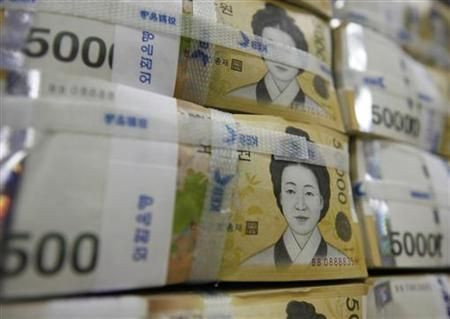South Korea's Consumer Price Inflation Slows To 1.4% In December

South Korea's consumer price inflation rose at a slower rate than expected in December, indicating that the country’s inflationary pressures are declining to provide room for further monetary easing policy measures required to boost economic growth.
According to the data released Monday by the Korea National Statistical Office, the country’s CPI, which measures the change in the price of goods and services from the perspective of the consumer, rose 1.4 percent in December, down from 1.6 percent increase in November and below the analysts’ expectation of 1.5 percent. The CPI, which is a key way to measure changes in purchasing trends and inflation, rose 0.2 percent in December compared to a 0.4 percent decline in November and below the analysts’ expectation of 0.3 percent.
This report comes after earlier this month the Bank of Korea (BoK) announced its decision to keep the policy rate at 2.75 percent, withstanding the pressure from the market participants for additional stimulus measures to give a boost to the country's weakening economy.
The revised data released by the BoK earlier this month showed that South Korea's economic growth slowed to 0.1 percent in the third quarter of this year compared to that in the previous quarter, weighed down by the faltering global economy and the intensifying debt crisis in the euro zone. The economy expanded 0.3 percent in the second quarter while it rose 0.9 percent in the first quarter.
The central bank has noted that the growth in the U.S. has lost momentum and that the euro zone economy is contracting, with weaker exports to the major economies in turn bringing a slower growth in the emerging Asian economy this year. At the same time, the BoK is expecting the economic slowdown to ease and the country’s economy to improve moderately.
On a positive note, South Korea’s industrial output rose in November compared to that in the previous month, continuing the period of expansion for the last two months, indicating that there is hope that the country’s economy is reviving in spite of the soft global demand. According to the data released last week by the Korea National Statistical Office, industrial production, which measures the change in the total inflation-adjusted value of output produced by manufacturers, mines and utilities, rose 2.3 percent in November from a 0.7 percent increase in October on a seasonally adjusted basis.
Market players sense that the monetary policy should be loosened again sooner rather than later though the BoK has shown a preference for moving slowly. With South Korea posting an inflation rate of 1.4 percent in December which is below the central bank's 3.0 percent target investors feel that there should be room for further policy loosening.
© Copyright IBTimes 2024. All rights reserved.





















